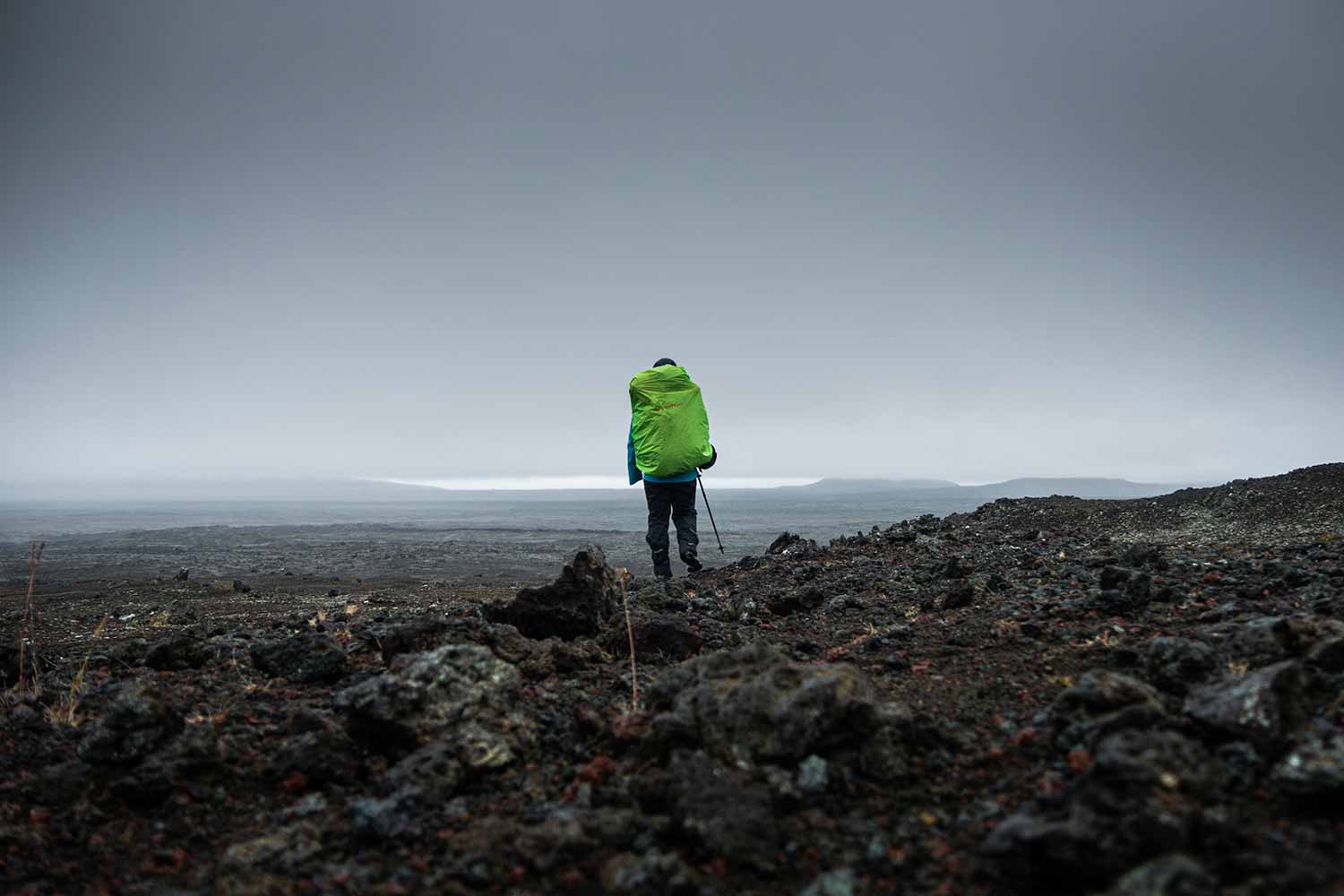This beginning of October diffuses in the air a feeling of sadness. It is cloudy. Gray and rainy. This year unlike the two previous years, the month of October will not be beautiful. The bad weather arrived early. My bicycle trip between each farm or work site is getting tough. I have trouble pedaling. I am too heavy, the roads are hilly and the weather threatening. And winter is approaching. So I take the train a lot. But the train is expensive, poorly organized for transporting bicycles and I begin to wonder about the best way to move between places.
I came back down by train in a torrential rain almost half of France. I left Brittany to land in the Limousin. A family farm is waiting for me here. In the heart of the Périgord-Limousin Regional Nature Park, in the middle of chestnut trees, lives a small family. A couple between thirty and forty and a little boy of four. They have been living here for two years on a nice property under development. Some four hectares between lands dedicated to aromatic and medicinal plants, vegetable gardens, barn, meadows for sheep, small wood and camping area. After permaculture and eco-construction, I wanted to work on a place related to herbalism, the third of the themes that guides my current journey. In this domain, aromatic and medicinal plants are grouped together under the term “simple”.
The small farm is located in an outlying district of a small town in the heart of Limousin. In the hollow of a valley, Marie and Paul bought in 2018, a converted farmhouse in perfect condition. For two years, they have been working on the development of their land with in mind the objectives of family autonomy, the production and processing of medicinal and aromatic plants and the sharing of knowledge. In the center of the land, slightly sloping, the cultivation beds dedicated to the production of aromatic and medicinal plants have been installed. There are about fifty species that are used in the preparation of the different products sold by the farm on the markets: herbal teas, flower syrups, pestos, herbal salts … Apart from the production of plants which occupies the large part of the time, Marie and Paul also do bed and breakfast and activities. Here the search for simplicity through an ecological conscience and the return to earth orients the way of life.
But the gray weather seems to infuse the atmosphere with a certain melancholy, a certain sadness. The family atmosphere is not in good shape. The words get angry and the eyebrows furrow. It may be the season. Perhaps it is the accumulated fatigue of the busy summer. It may be a bit of weariness. I do not feel like I am requested for a great help and yet the farm is overwhelmed with projects to do: repairing fences, maintaining the vegetable garden, tidying up the barn, setting up a lab for processing plants, picking flowers, harvesting chestnuts, cutting wood for the fire, building a shelter for the sheep, preparing produce, maintaining the house, setting up a new kitchen, researching markets, communicating with local associations, educating the kid, harvesting mushrooms … There is a lot to do, maybe too much. I participate well in the daily activities of the farm but not enough to make me feel really useful. And the practice of herbalism which interests me so much is not really present. I hesitate a little, I do not feel very comfortable. Is it me who want to do too much? Or is it something else?
It must be said that the couple have a lot of things on their mind. First of all, the announcement a few days before my arrival of our president who engulfed in the fight against terrorism, religious problems and obsession with security, announced that home education was going to be abolished from the start of the 2021 school year. Marie almost has her skull smoking so upset that she is against the decision. Émile, the little four-year-old boy, draws on the window, ignoring the issues playing out around him. He does not go to school, it is his parents who educate him. No television or tablet. Nature as a playground and learning every day alongside the adults or children who revolve around him. Its sandpit is a great refuge in permanent reconstruction for the insects which would pass by there. Small wooden pallets are used to him to develop superb constructions resulting from his fertile imagination. The name of plants has no secrets for him nor the different techniques to cultivate them. Each chestnut picked up with a slightly bizarre shape turns into a boat that crosses the living room of the house. And the two hours of the play “The song of the trees” that we went to see to see on a Saturday evening does not pose any attention problem for him. Child-friendly education, where curiosity and understanding are the key words. I look at the child and I look at his parents who are trying as best they can to combine education, work on the farm, professional production, housework and mutual communication. Things are not easy.
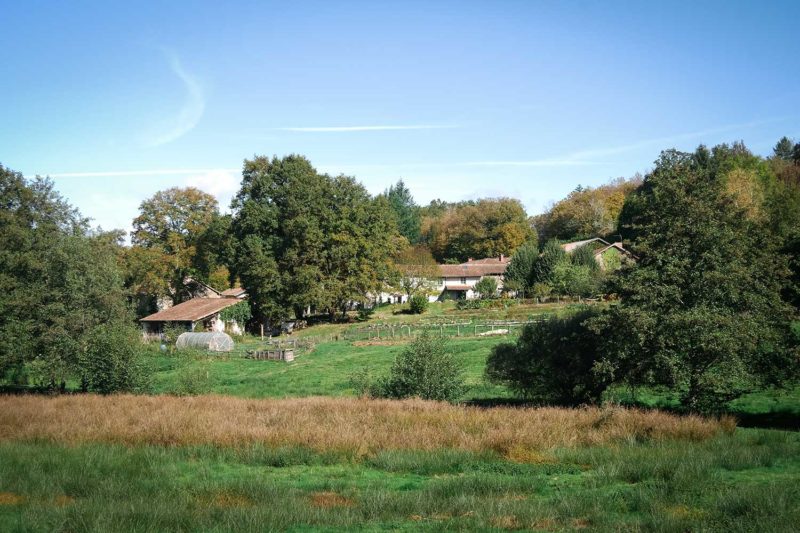
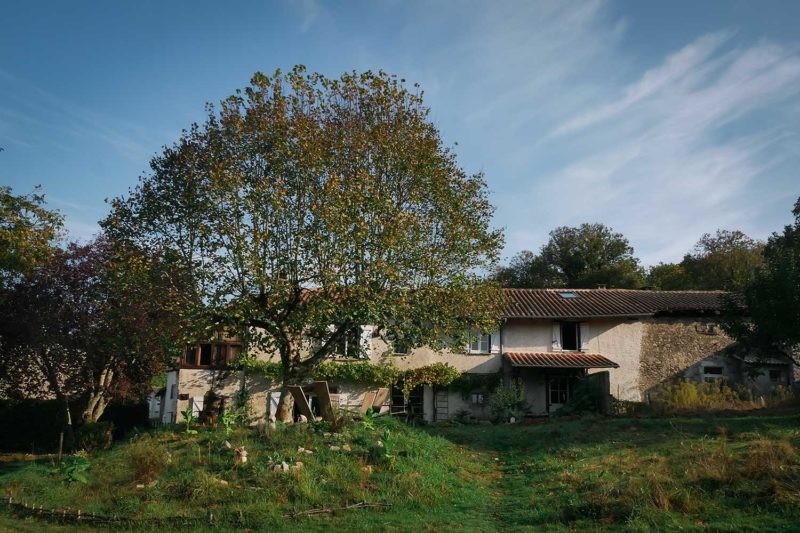
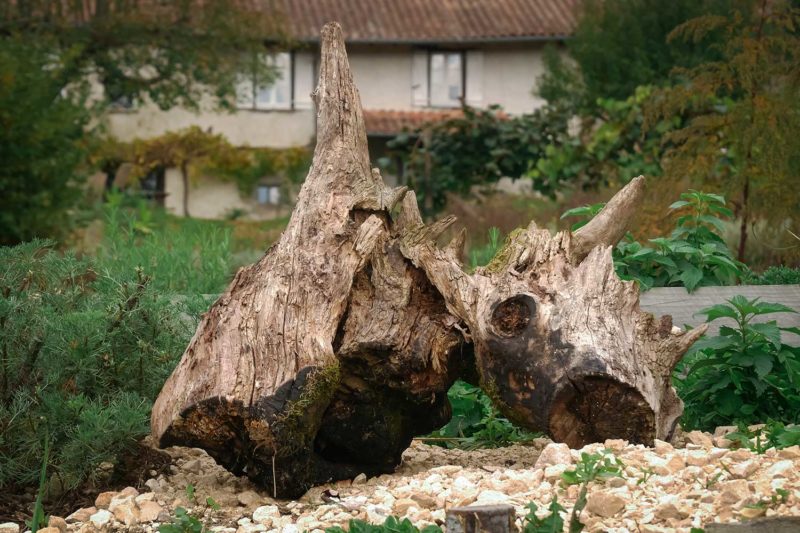
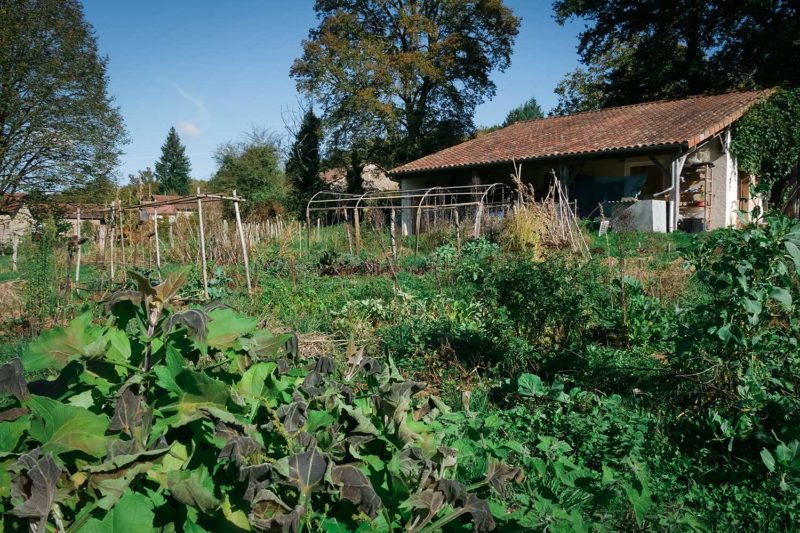
The view of the farm and its hectares with the vegetable garden at the bottom right.
A new day dawns with the announcement of another canceled market. The SARS-CoV-2 virus that appeared at the start of the year has still not disappeared and continues to destabilize society and the economy on a global scale. Since almost eight months now, the media has been stunning us with endless catastrophic announcements instilling paranoia and fear in people’s minds. Far from big cities, in contact with small villages and nature, the consequences of the epidemic and the crisis it generates are less felt. But even here, in the depths of Limousin, the sprawling arms of the zero risk obsession eventually creep in. For the family, each canceled market announcement rhymes with concern. How are they going to sell their products if their usual main places of sale disappear? Fortunately, the harvest of chestnuts opens an emergency door. For the moment.
But the concern is not limited to the markets. A field of photovoltaic panels and an army of wind turbines are maybe gonna being installed in the town. The wind turbines should be mounted on the ridge just in front of the farm. Goodbye to the tranquility, the sound of birds and the lovely view. Hello gray constructions, the strobe effect and the whistling of the pale. The couple has been fighting since the announcement of the projects with a local association to try to have their construction refused by the municipality. I do not quite understand why? Are they not for the green transition? For the implementation of renewable energies instead of fossil fuels? But that is not the problem. It is not the development of these so-called “clean” energies that is causing the outcry. It is all the greenwashing and the way they are implementated that is at the heart of the debate. Because the industrialization of the countryside by private companies is accelerating. And the headlong rush towards more energy production to avoid realizing that the problem of our current way of life is not technical but political and social is what denounces the opposition which includes the couple and the members of the association. But even here in an association defending ecological values, the discussion is not easy. It does not exist at all according to my hosts. Democratic values, decision-making together, listening and exchange seem to have deserted the minds of the leaders of the association who seem to act, from what I hear, as perfect little dictators. Marie, Paul and other couples from the region spread their misunderstandings by the fireside looking for solutions to put in place. They do not want to follow the blind leader preferring to play on the dissemination of alarmist leaflets rather than on the establishment of think tanks and awareness. They advocate discussion and the need to evoke all the issues rather than the propagation of fear and the simplification of the subject. Secession seems to be the only possible outcome. Rather than fighting against windmills, isn’t it better to put our energy elsewhere? With other like-minded people to fight effectively with all the strength of our little hummingbird wings?
You might think that in the heart of the countryside, in the middle of plants and birds, withdrawn in its little cocoon of autonomy, life would be simpler. But no. All these neo-rural people, these new peasants, these eco-places, these people in questioning face the problems of the current world with as much impact if it is not more than the rest of the population. It is precisely because they have chosen to change their life, to get out of the mold, that the slap in the face is stronger. Each gesture, word, behavior, decision must be rethought, redefined, rebuilt. How to communicate differently? How to inhabit the world? How to rethink our relationship with other living creatures? How to change things? How to invent tomorrow? These two weeks at the farm were a different experience than I expected. It was not what I wanted but it was what I got. A number of observations tinged with a blast of despair appeared in my mind: how are we going to live together if we are not able to understand each other? Can we rethink our way of communicating? Are we only able to really listen to ourselves? Do our actions have the slightest impact on the way the world works? How to avoid personal problems invading everyday life? Why does disorganization always seem to interfere in our projects? High in the sky, a group of cranes gossip as they fly overhead. We raise our heads and observe the flight with a slender form. The birds seem so peaceful, so orderly, so sure. They follow an aerial path that only reveals itself to them. They go to Africa and the warmer climates of winter. Another group follows them a few minutes later. So I tell myself that the inspiration to face all these questions, these abysmal issues, these disasters looming on the horizon can be found in the living world all around us. In natural simplicity, devoid of any negative connotations but rather evoking a form of respectful efficiency, founded in the immensity of the other living creatures inhabiting this planet.
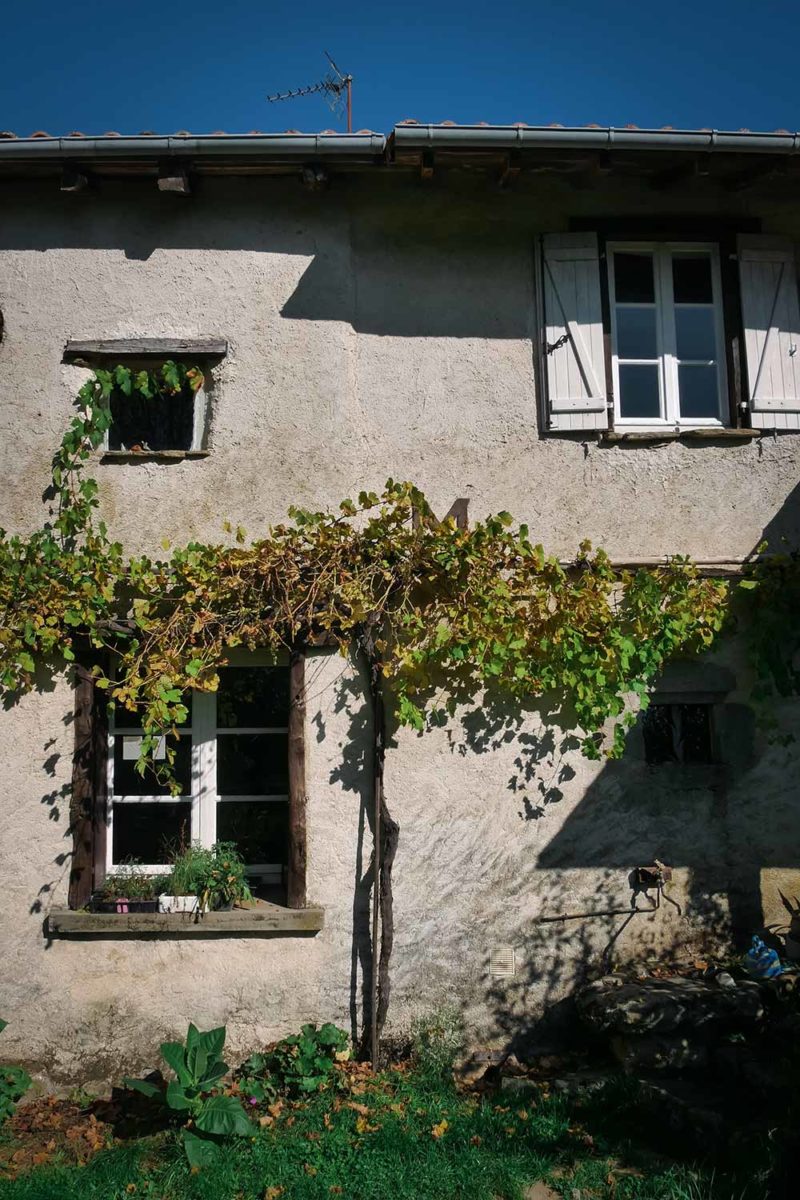
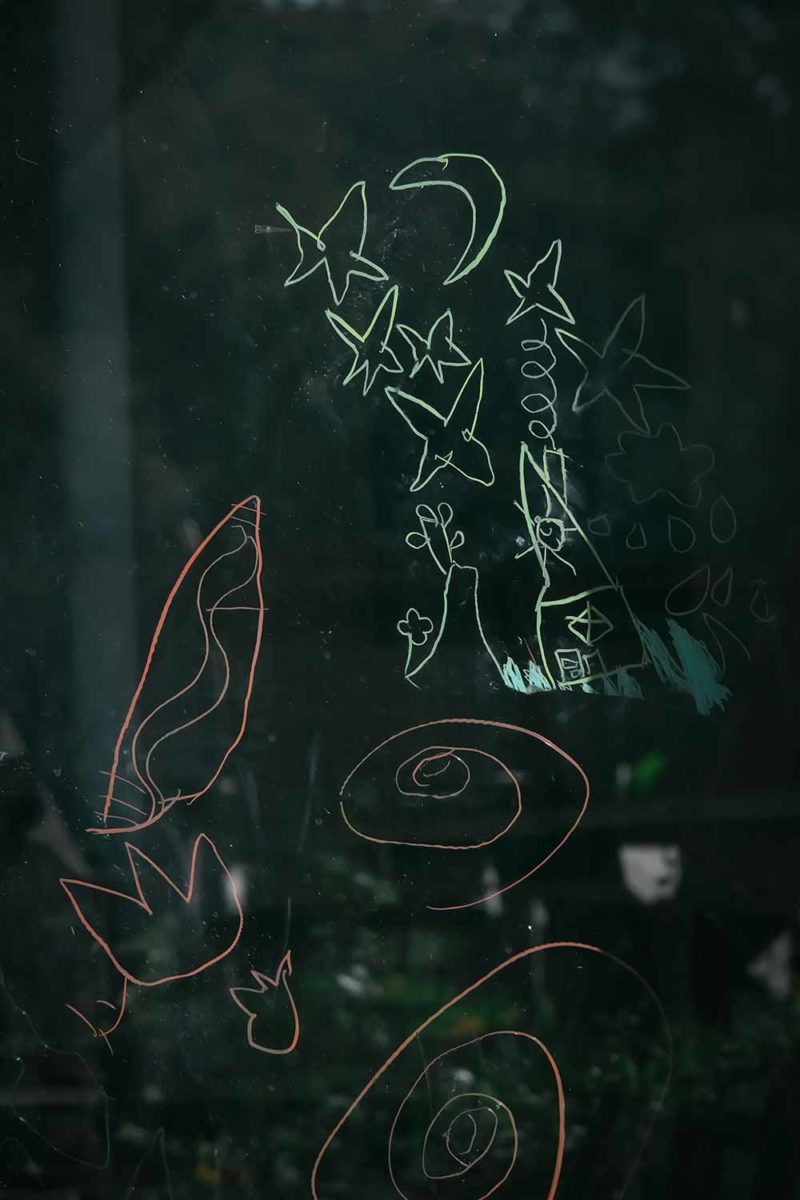
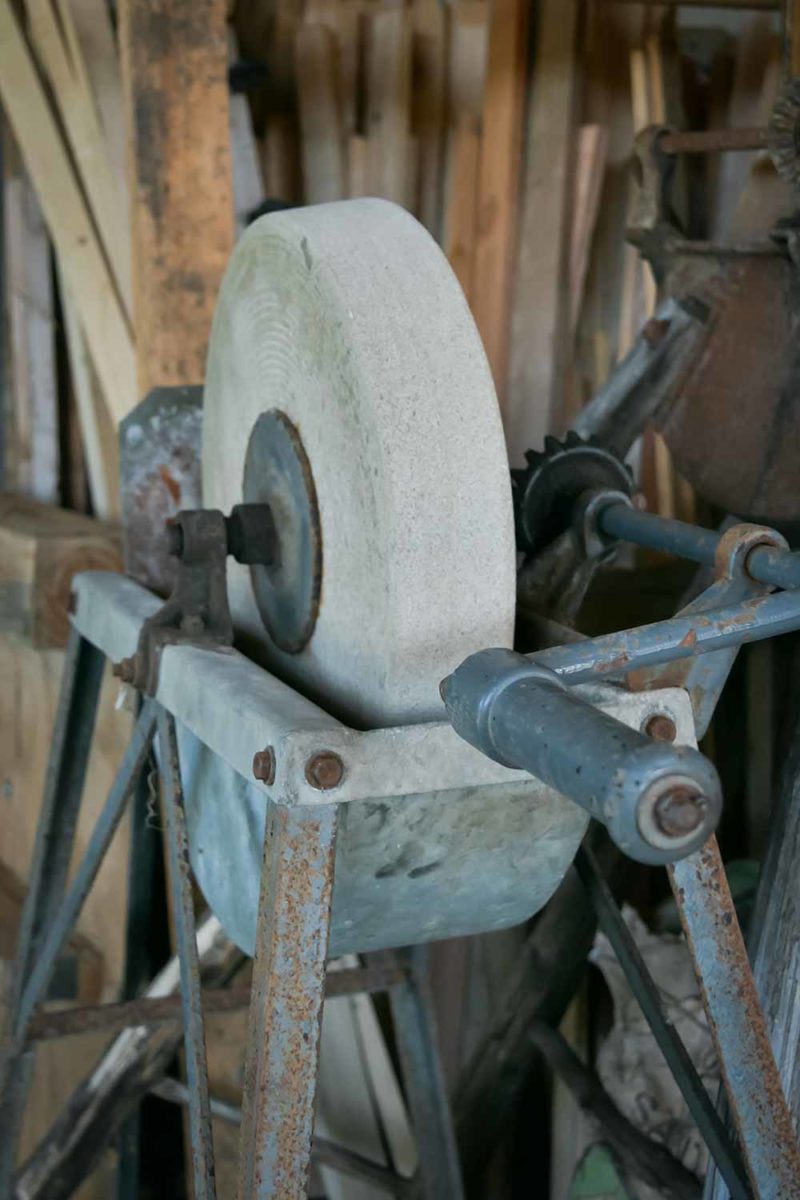
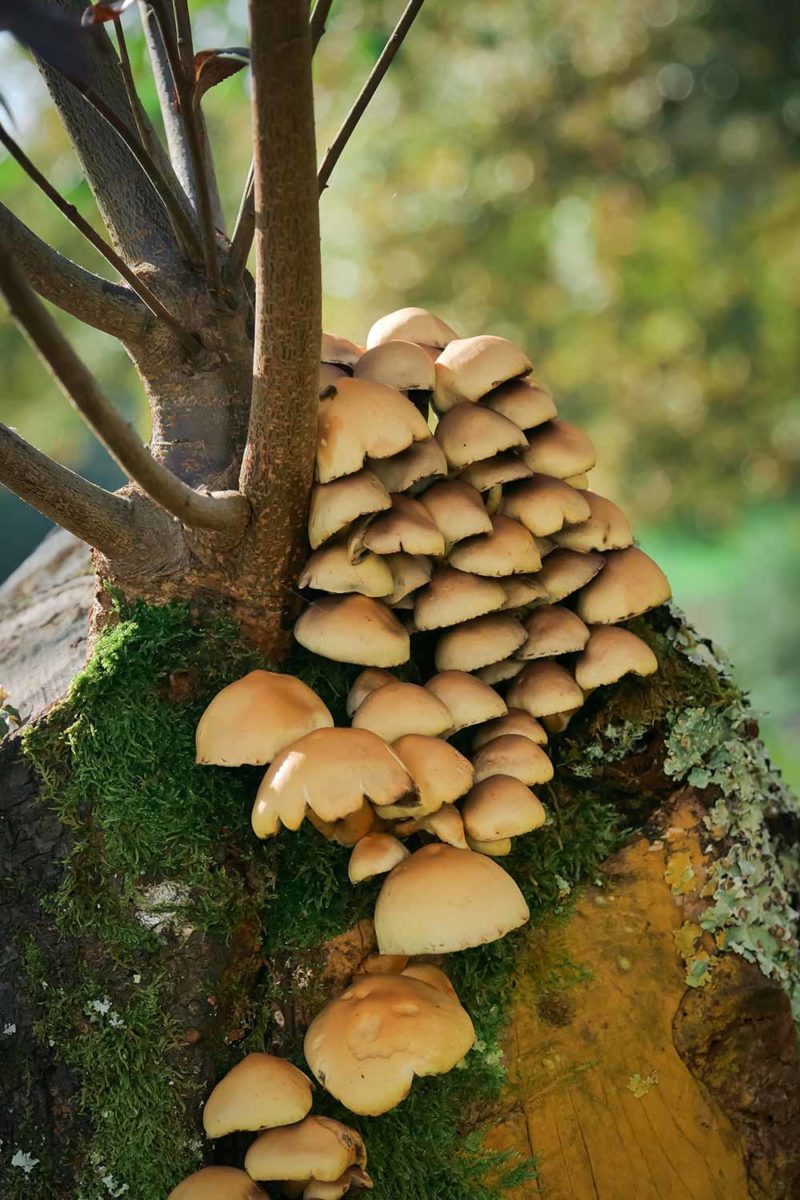
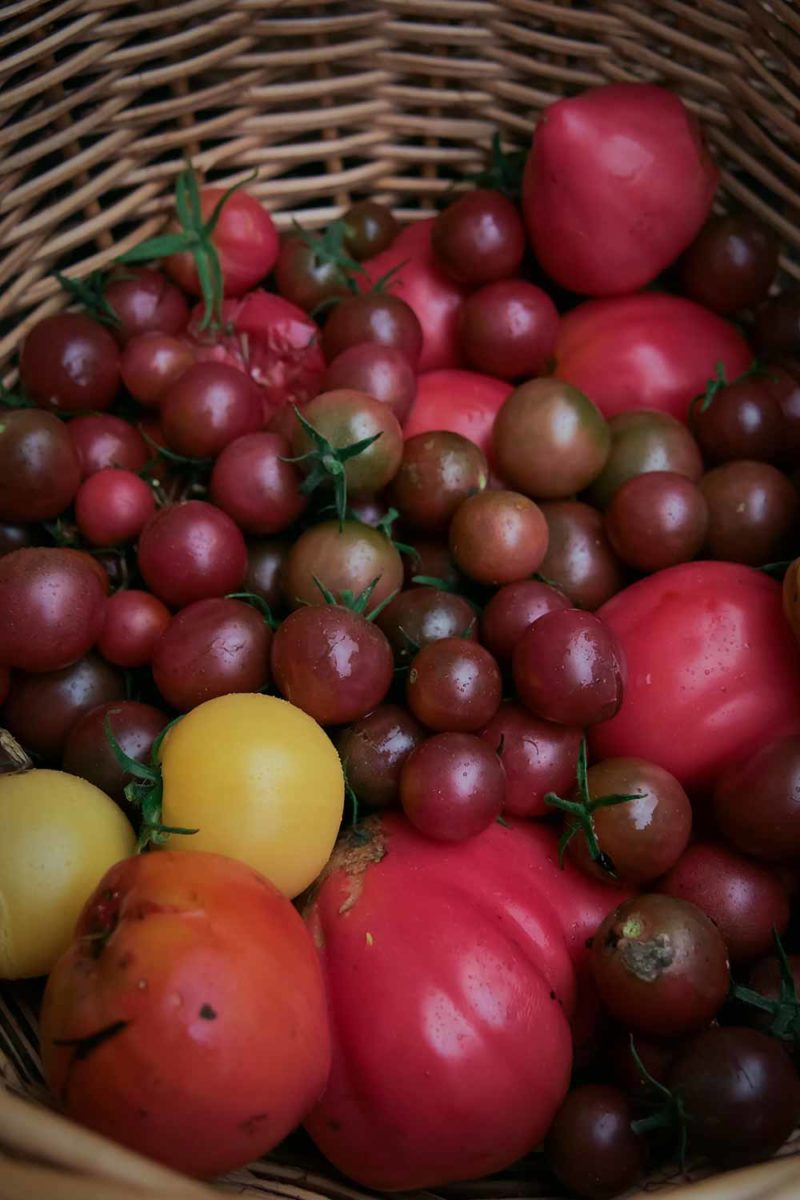
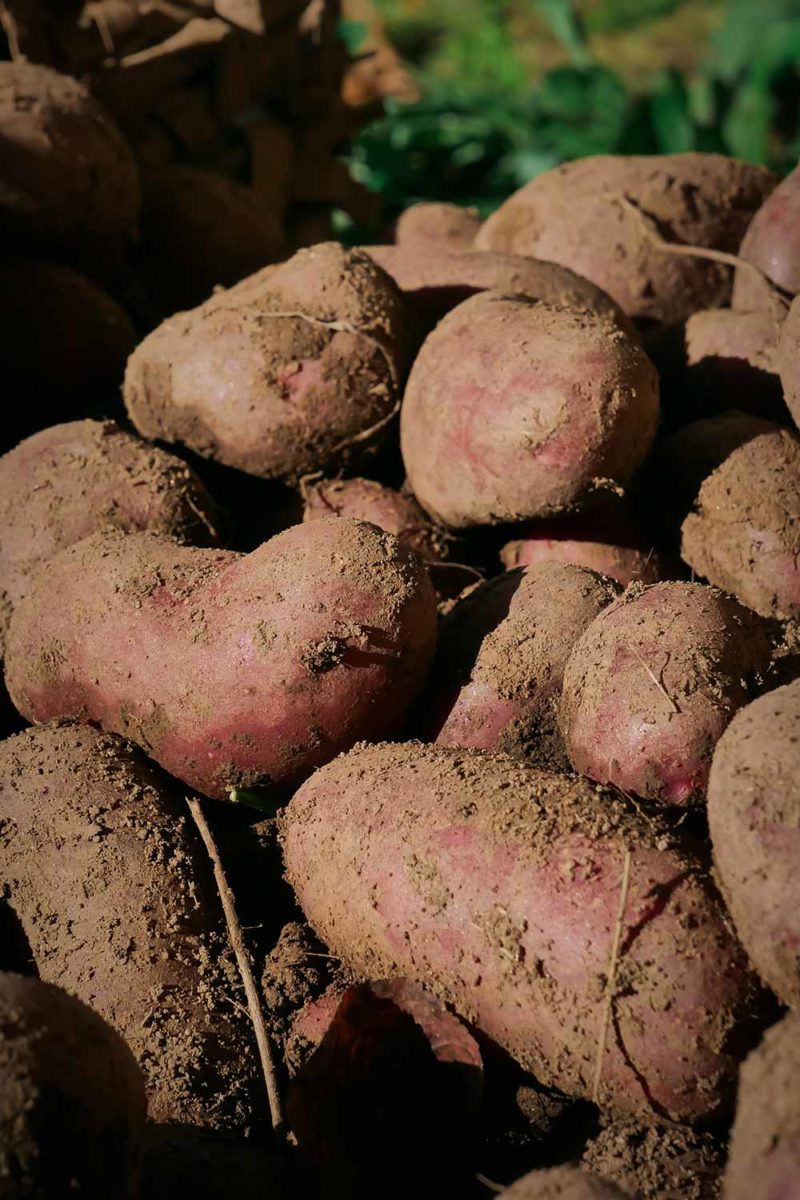
Details of the farm between drawings by Etienne on the windows, a grinding wheel for tools, a mushroom colony and the harvest of tomatoes and potatoes.
Note: In order to respect the right to privacy and anonymity on the internet, the names of people have been changed.
